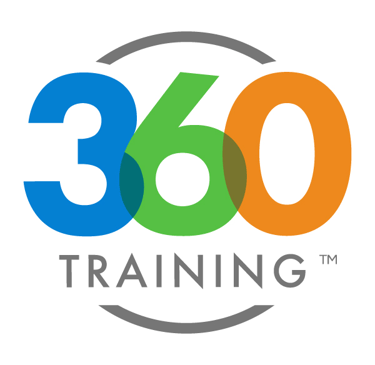Understanding ServSafe Certification: Is It Necessary for You?
ServSafe is one of the most recognized food safety certifications, but is it right for you? We break down who needs ServSafe training, what’s covered, and how to enroll.
4/8/20255 min read


What is ServSafe Certification?
ServSafe Certification is a nationally recognized program that provides food safety training for food service professionals. Developed by the National Restaurant Association, its primary goal is to educate food handlers about the essential practices necessary to ensure the safety of food and prevent foodborne illnesses. This certification has become a cornerstone of food safety training within the food service industry, offering a standardized approach to food handling and preparation.
The significance of ServSafe Certification lies in its ability to equip individuals with the knowledge required to maintain hygiene standards, understand food storage guidelines, and recognize the importance of temperature control. As foodborne illnesses continue to pose serious health risks, the role of ServSafe certification in enhancing food safety cannot be overstated. It empowers employees and managers alike to understand the science behind food safety and implement best practices in their establishments.
There are several types of ServSafe certifications designed to meet the varying needs of the food service sector. The ServSafe Manager certification focuses on higher-level managerial practices, catering to those in supervisory or managerial positions. This level covers extensive topics relating to food safety regulations, employee training, and sanitary practices. On the other hand, the ServSafe Food Handler certification is aimed at individuals who directly handle food, ensuring they possess the fundamental skills necessary for safe food preparation.
Additionally, ServSafe offers a specific certification for alcohol service, known as ServSafe Alcohol. This program is designed for those who serve or manage the sale of alcoholic beverages, addressing key areas such as responsible beverage service, legal issues, and the potential risks associated with excessive consumption. Each of these certifications plays a vital role in ensuring a safer dining experience for consumers and is highly regarded within the industry.
Who Needs ServSafe Certification?
ServSafe Certification is essential for various professionals within the food service industry, as it equips individuals with vital knowledge regarding food safety and sanitation. Specifically, food handlers, food service managers, and alcohol servers are often required to obtain this certification to comply with state regulations. The necessity for this certification can vary significantly by state or local jurisdiction, with many requiring food handlers to demonstrate proficiency in food safety practices.
Food handlers, who are directly involved in the preparation, cooking, and serving of food, must understand fundamental concepts such as proper food storage, cross-contamination prevention, and safe cooking temperatures. Achieving ServSafe Certification not only fulfills legal requirements but also minimizes the risk of foodborne illnesses, enhancing the overall safety of dining establishments.
Moreover, food service managers play a crucial role in overseeing operations and ensuring that their teams adhere to food safety regulations. Many states mandate that these managers obtain a higher level of certification, often by completing an accredited training course such as ServSafe Manager Certification. This certification empowers managers with the skills to implement food safety systems and conduct employee training, thereby ensuring compliance with health regulations and safeguarding customer well-being.
In addition to food service operations, other industries may also derive benefits from ServSafe Certification. For example, catering companies, schools, hospitals, and event venues all have food service elements that benefit from trained personnel. Additionally, individuals working in settings where alcohol is served, such as bars and restaurants, may be required to complete responsible alcohol service training tied to ServSafe guidelines.
Overall, individuals across a range of roles in the food service industry, as well as those in related fields, can enhance their career prospects and contribute to a safer dining environment by obtaining ServSafe Certification.
What Does ServSafe Training Cover?
ServSafe training programs are comprehensive courses designed to impart essential knowledge and skills necessary for food service professionals. The curriculum primarily focuses on critical areas such as food handling and hygiene, cleaning and sanitization, proper food storage, and understanding food allergens. These key components are integral to ensuring safety and compliance within food establishments.
Food handling and hygiene practices are the cornerstone of the ServSafe curriculum. Participants learn about personal hygiene practices, such as proper handwashing techniques, wearing appropriate attire, and maintaining cleanliness throughout food preparation areas. This knowledge is vital for preventing foodborne illnesses, which can have disastrous effects on both consumers and food service businesses.
An essential aspect of ServSafe training is the focus on cleaning and sanitization. It covers necessary cleaning procedures for kitchen tools, surfaces, and equipment, along with effective sanitization methods that adhere to health regulations. Participants are trained to recognize the difference between cleaning and sanitizing, a distinction that is crucial for maintaining a safe food environment.
Proper food storage is another significant component of the ServSafe training. Food service professionals must be well-versed in how to store food at the correct temperatures and how to manage food inventory to minimize waste and spoilage. This knowledge not only contributes to food safety but also enhances operational efficiency.
Understanding food allergens is equally important, as it equips food service workers with the ability to recognize allergenic ingredients and manage cross-contact situations. The training emphasizes the importance of clear communication with consumers regarding allergenic foods, which is vital for protecting those with food allergies and ensuring their safety.
Moreover, ServSafe certification ensures that professionals are knowledgeable about local and national food safety regulations. This understanding equips them with the ability to navigate compliance issues effectively, fostering a culture of safety and accountability within food establishments. Overall, the ServSafe training curriculum arms food service professionals with practical skills that can directly impact their daily operations and consumer safety.
How to Enroll in ServSafe Training
To initiate the journey towards obtaining ServSafe certification, individuals need to engage in specific training programs that cater to various aspects of food safety management. There are multiple methods to enroll in ServSafe training, including online courses, in-person classes, and blended learning options that combine both approaches. The flexibility of these methods allows participants, whether they are food service managers, employees, or owners, to select the best fit for their learning style and schedule.
Online courses offer convenience and accessibility, allowing users to complete the training at their own pace. These often feature interactive modules and quizzes to reinforce learning and prepare participants for the certification examination. In-person classes, on the other hand, provide a structured environment with direct interaction with instructors, allowing for real-time questions and clarifications which can enhance understanding of complex topics related to food safety.
Cost considerations are essential when deciding on the type of ServSafe training. The fee for ServSafe courses can vary significantly based on location, method of delivery, and inclusivity of materials. Generally, online courses might be less expensive, while in-person sessions could incur additional costs for venue and instructor fees. Typically, individuals can expect to invest from $100 to $200 for the training and certification exam in total.
The duration of the courses can also differ; online options may take as little as a few hours to a few days, while in-person classes often require a full day of training followed by the exam. After completing a training course, candidates must take the ServSafe exam, which usually consists of multiple-choice questions to evaluate their knowledge and proficiency in food safety practices.
As part of preparation for the exam, it is advisable for participants to utilize study resources such as practice exams, flashcards, and review guides. Familiarizing oneself with the format and content of the exam can significantly enhance the probability of successful completion and certification acquisition.
Training
Expert resources for online training and certifications.
Skill Upgrade Guide is a participant in the 360Training affiliate program, which means we may earn a commission when you purchase through our links. This helps support our research and content at no additional cost to you. We only recommend training programs that meet our high standards for quality and compliance.
Courses
Support
Admin@skillupgrade.com
© 2025. All rights reserved.



